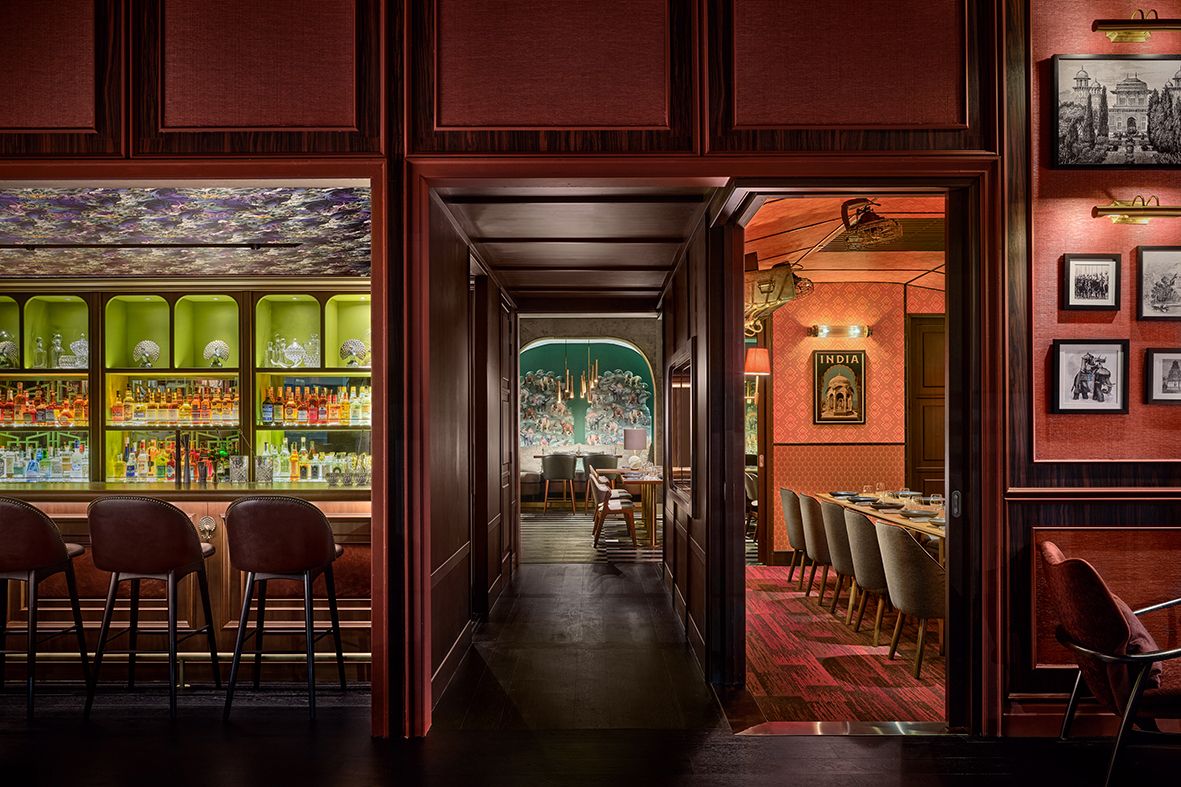The Dandy Collection founders Rohit Roopchand and Michael Goodman share the difficulties of opening new dining concept during this period
Firangi Superstar, the modern Indian restaurant under F&B group The Dandy Collection (which also owns Neon Pigeon and Fat Prince) opened in June of this year, just when many assumed that the Covid-19 situation in Singapore was stabilising and we’d get on with our lives in the new normal. Then, new clusters from the KTV and the Jurong Fishery port clusters emerged in July, which led to another Phase 2 (Heightened Alert) and dine-in restrictions that lasted from July 20 to August 10.
The restaurant was barely a month old when it was forced to temporarily shutter its doors during this period. It has since returned to normal operations, but with the alarming spike in recent cases and the latest dine-in measures that reduced the number of diners from five to two, it will be another challenging time for the new restaurant and the whole F&B scene.
This begs the question: why do chefs and restaurateurs risk opening new dining concepts in this climate where dining establishments just come and go?
Rohit Roopchand, the co-founder of Firangi Superstar, shared that he and co-founder Michael Goodman had always wanted to open an Indian restaurant due to “my background and Michael’s connection to India”. Roopchand elaborated that the stars just aligned for them, and they were able to find the “right space, right location and right people” to make this dream a reality.
As Roopchand and Goodman continue to navigate the F&B scene with their team in the time of Covid-19, they chat with Tatler Dining on their new restaurant concept and how diners can continue supporting the struggling industry.
See also: New Restaurant Alert: Firangi Superstar’s Colonial Take on Traditional Indian Food

Given these tough times, what made you decide to open Firangi Superstar during this period?
Michael Goodman (MG) We’re all “stuck” here and haven’t been able to feed our wanderlust with travel, discovery, and exploration. We thought that the market was crying out for a place of pure fantasy and escape—there aren’t many places that encourage you to express your imagination that way. In your mind, you can leave Singapore for a few hours, no passports and no quarantine required. We really felt that people would appreciate that.
Did the pandemic have any impact on the conceptualisation of the restaurant and the menu?
Rohit Roopchand (RR) Yes, but I think its effects are indirect. When working on the menu with head chef Thiru Gunasakaran and Michael, memories played an important role. I recall trying dishes Thiru prepared and feeling like I’ve been transported back to another time and place. Being unable to travel to India to see my family probably made these moments extra special, and this could have influenced how we went about conceptualising the menu. Dishes like Tikka Takeaway and This Is Not Aloo Gobi brought back some great memories.
MG Absolutely. We all spent the last 18 months living on Netflix and movie downloads. We used that as a means to escape, so we decided to view this restaurant as a collection of film sets. It was directly born from society’s collective experiences during this time. We wanted to build something that was born out of that, lived that spirit, but did so in a way that felt entirely different once a guest is in it. As a creative, I found this really exciting to work on. As a hospitality person, I felt like it was my obligation to help people feel positivity again. It was a very powerful driver for me personally.
See also: Michelin Guides’ Gwendal Poullennec on What He Learned Over the Covid-19 Pandemic






